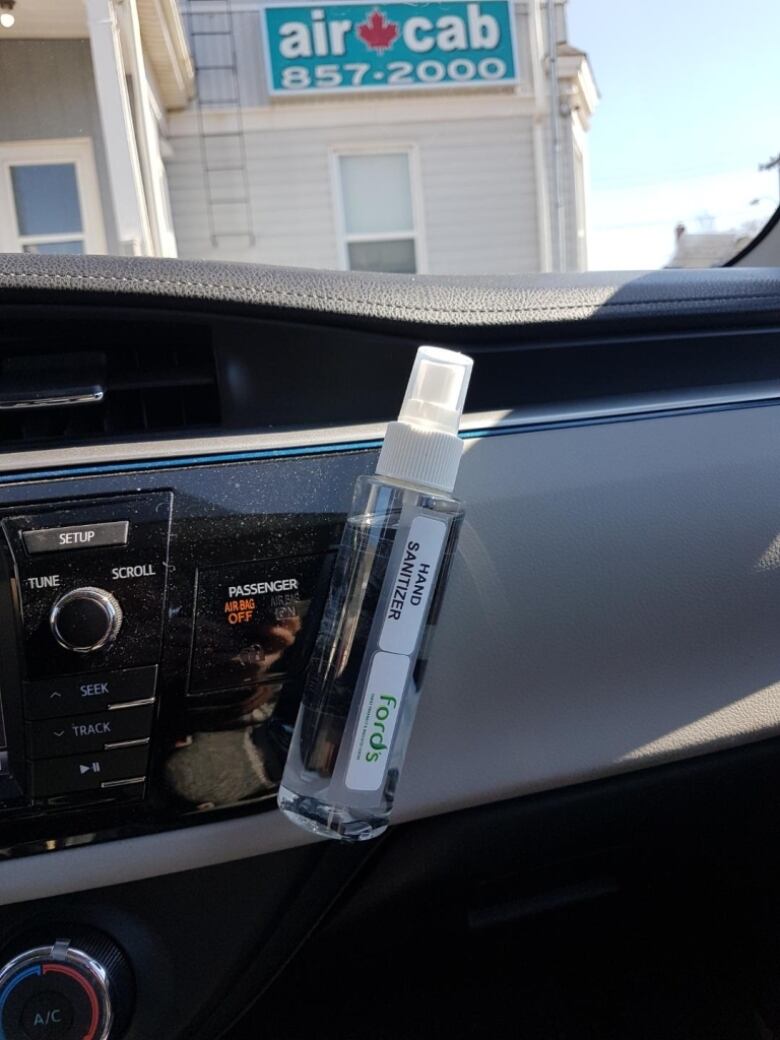'We don't have the luxury of space': Difficult circumstances for taxi drivers, as calls disappear
Taxi industry takes a hit as many customers stop calling and drivers park their cars

Taxi companies across the province are seeing a decrease in calls, and more drivers parking their cars as many people stay home.
When the province enacted the emergency measures act March 19, it stated taxi services could continue to operate while applying social distancing and hygiene recommendations.
But the provincial guidelines acknowledge this is sometimes difficult, stating "to the extent possible for taxicabs."
Jonathan McNally, manager of Air Cab in Moncton said his company has about 65 cabs on the road, about half its normal fleet.
He says the drivers who are choosing to continue to pick up passengers are doing what they can to keep themselves and their customers safe.
"We don't have the luxury of space inside the vehicles but we have enacted a few measures to try to limit exposure as much as possible."
McNally said his drivers will only take two passengers at a time, and they are asked to sit in the back, but there are always exceptions.
"Of course, from time–to–time parents may need to transport young children so we do certainly make exceptions in those cases."
His drivers sanitize hard surfaces between calls, limit the use of cash and try not to touch passengers' belongings, but taxi drivers are relied upon by many people to help with different tasks.
"As an example, if somebody needed help packing up a wheelchair into the back of a vehicle we can certainly still help with that," said McNally.
No faith in government help
Like most taxi companies, Air Cab's drivers are self employed and choose when they work.
Kevin Ramsay is with Vets Taxi in Saint John, and has been driving cab for twenty seven years .
He caught H1N1 in 2009 while driving a taxi on Prince Edward Island, and says it taught him to take pandemics seriously.
He said he keeps driving because he has bills to pay, and doesn't have much faith in financial aid packages from the province or the federal government.
"Until the money's in the bank, as far as I'm concerned, it's just announcements," said Ramsay.
Aside from the money, he keeps driving because he knows people are relying on him and other drivers.
"They have to go."

"You know 99 percent of the people that I'm driving aren't going anywhere other than work or home or they're going straight to the stores," said Ramsay.
But each morning he said he asks himself, "is today the day I shut down?"
Ramsay is not the only one reassessing the situation daily. George Yousseff, co-owner of Checker Cab. Fredericton's largest taxi fleet with 25 to 50 cars on the road, said more than half of his drivers are not reporting to work.
"People don't want to get the virus," he said.
"Right now my older drivers are in that category of high risk. They're over 60 and they tell me it's not safe to be out, they're saying they'll be back when it's over."
Youssef's company has the contract for the Fredericton International Airport which means his drivers are exposed to returning and departing passengers.
He hopes customers will use his cabs to deliver necessary goods, allowing his drivers to continue to earn money while more people shop from home.